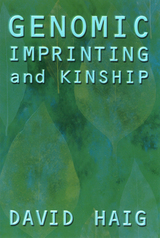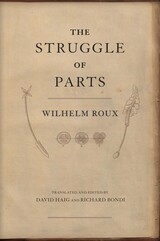

A landmark work of nineteenth-century developmental and evolutionary biology that takes the Darwinian struggle for existence into the organism itself.
Though he is remembered primarily as a pioneer of experimental embryology, Wilhelm Roux was also a groundbreaking evolutionary theorist. Years before his research on chicken and frog embryos cemented his legacy as an experimentalist, Roux endorsed the radical idea that a “struggle for existence” within organisms—between organs, tissues, cells, and even subcellular components—drives individual development.
Convinced that external competition between individuals is inadequate to explain the exquisite functionality of bodily parts, Roux aimed to uncover the mechanistic principles underlying self-organization. The Struggle of Parts was his attempt to provide such a theory. Combining elements of Darwinian selection and Lamarckian inheritance of acquired characteristics, the work advanced a materialist explanation of how “purposiveness” within the organism arises as the body’s components compete for space and nourishment. The result, according to Charles Darwin, was “the most important book on evolution which has appeared for some time.”
Translated into English for the first time by evolutionary biologist David Haig and Richard Bondi, The Struggle of Parts represents an important forgotten chapter in the history of developmental and evolutionary theory.
READERS
Browse our collection.
PUBLISHERS
See BiblioVault's publisher services.
STUDENT SERVICES
Files for college accessibility offices.
UChicago Accessibility Resources
home | accessibility | search | about | contact us
BiblioVault ® 2001 - 2024
The University of Chicago Press









